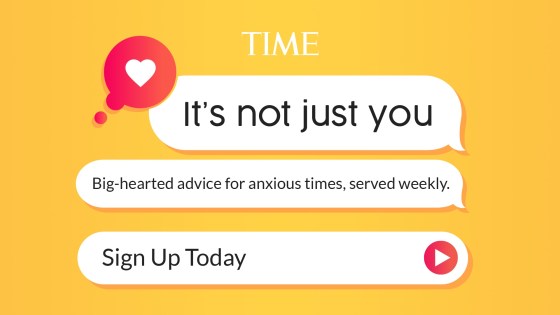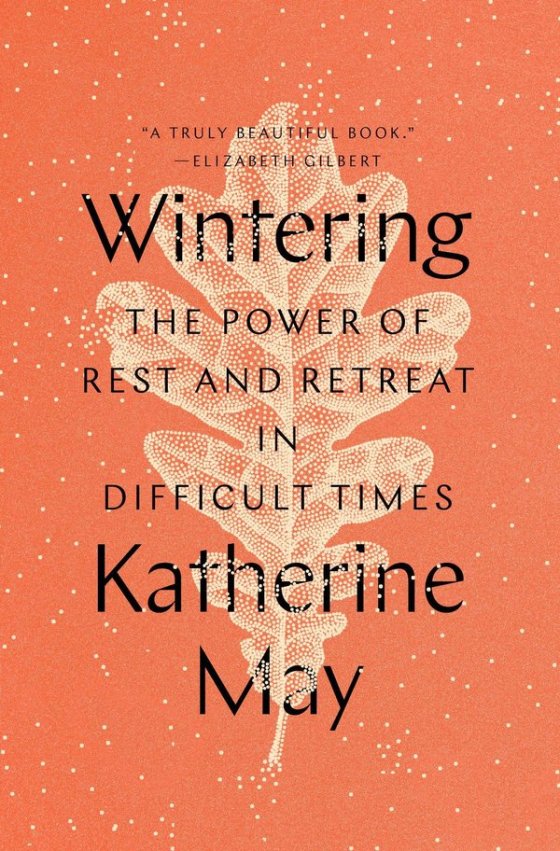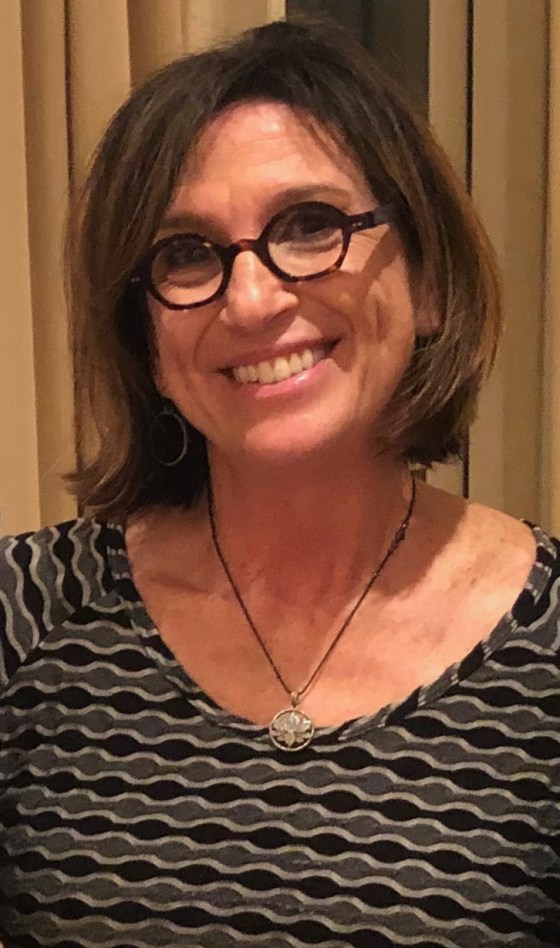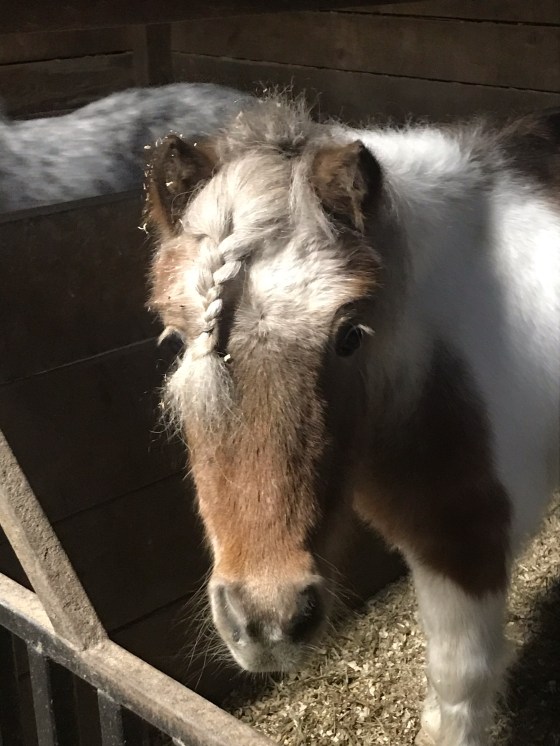A version of this article appeared in this week’s It’s Not Just You newsletter. SUBSCRIBE HERE to have It’s Not Just You delivered to your inbox every Sunday. And send comments to Susanna@Time.com
Well hello! I’m so glad you’re here. This week: a letter to parents of teens, many of whom are struggling, a selection of expert pandemic parenting advice, plus some evidence of human kindness.
DEAR PARENTS: IT’S NOT JUST YOU, THIS IS HARD.
Over the last few months, I’ve gotten so many emails from parents of teens—both readers of this newsletter and friends. And while the details vary, I can hear the thrum of fear in each one as they describe a child who seems to be slowly crumbling, or is in crisis. So this is a letter for all of you:
You’re not alone. You’re not the only one feeling lost or like you’re the worst parent you know. So many of us have been where you are now, especially in an unimaginably fractured and stressful year, one that has made everything that’s already difficult about adolescence that much harder.
I have woken up at 2 or 3 a.m. and found myself parsing the day, thinking how I’d said exactly the wrong thing at the wrong time to a kid I wanted to connect with. Somehow I’d closed a door I’d hoped to open, or missed something I would have seen if I’d been better at this. Other times I’ve caught a glimpse of sadness and distance in the eyes of my child that made my heart shudder.
The feeling is more than worry; it’s a kind of subterranean unease that ebbs and flows with the moods of your kid, and your own attempts at balance. So often we have no clue what’s really going on with these mostly-grown creatures of ours. It’s like trying to find your way using stars that keep moving and morphing. And who knows how much of this angst is related to the strange circumstances of this era, and how much is organic to your family, your kids, your decisions.
There’s just no precedent for us to draw on, no guide to parenting teenagers in the middle of a once-in-100-years pandemic paired with an economic catastrophe. And so we press on, trying to focus on the usual things like college applications or screen time.
Some days it feels like we’re all in that Star Wars trash compactor, but we keep going, telling our kids, “Just do your schoolwork; ignore the noise.”
Decades from now, I imagine we might think it was all madness, this clinging to bits of normalcy.
From increased anxiety and stress to rising loneliness, Gen Z teens and young adults have been hit hard by the Covid-19 pandemic, according to the American Psychological Association’s latest survey, Stress in America 2020. It is an exceptionally vulnerable stage of life anyway, and this is a generation that has grown up with school-shooter drills and built-in angst about the long-term effects of climate change. So it isn’t surprising that too many are now grappling with serious depression, becoming self-destructive, or losing motivation for school.
I wish I had a list of quick fixes to add here: Meditate with your kid every day! Enroll them in an outdoor exercise class! Binge watch Gilmore Girls! But of course, there isn’t a prescription that will make it all O.K.
Still, there are things you can do: Forgive yourself, first of all. Take breath. This is hard, but you get to start fresh every day. And it’s good to remember that for many teens, having an adult who’s not you to talk to, someone they trust (and will text), can make a huge difference.
And there’s one small ritual that might help keep the lines of communications open in your house, as it has mine. You could ask everyone in the family to say two good things about their day, and maybe one bad thing. It’s like a gratitude exercise, but also an opening for a conversation.
If all you get is a list and no conversation, you still learn something about your kid, and they about you. And if a grilled cheese sandwich was a good thing that happened, there’s more than a little comfort in knowing that.
Yours, Susanna
💌 P.S. I asked my kids and some of their college friends what advice they’d give to parents, and here’s what they had to say.
“Talk to us in the in-between times,” they said, “not just when you’re worried and want to know if we’re O.K., or you want us to do something. Take an interest in the shows and videos we’re watching, or the books we bring home. Ask us to explain why we like this stuff.
“Don’t get defensive and take what we say about what’s going on in our lives as a reflection on you personally. You can’t assume our problems are your failures. It’s not always about you.
“You might want a reason why we’re doing something destructive, but we probably can’t give you a single reason. Focus on the emotion behind what we’re doing instead. Validate the way we feel; don’t try to tell us all the reasons we should feel better.”
This week’s Coping Kit, below, offers some expert resources, seminars, and teachings for parents of teenagers and younger children. And if you think your kid’s issues are acute, trust your gut and call the emergency numbers listed, get support.
If you’re new to It’s Not Just You, SUBSCRIBE HERE to get a weekly dose delivered to your inbox for free.

COPING KIT (FAMILY EDITION) 💚
COVID-19 Resource Guide for Parents & Guardians: Excellent multimedia resources for supporting teen mental health, managing the college application process during the pandemic, and more from The Jed Foundation.
How to Help a Friend: Tips for teens (and parents) from The National Alliance on Mental Health (NAMI).
How to Give Psychological First Aid: I found this to be a hugely helpful short video from the very engaging Ali Mattu, a clinical psychologist on how to stabilize someone in crisis. Plus find quick takes on coronavirus mental health issues here: The Psych Show with Ali Mattu. Includes tips on COVID anxiety and a message for graduating seniors.
Does My Child Need Help? Guidelines on assessing your situation and finding help from the Child Mind Institute.
FAMILY BASICS: A 6-Session Program for parents and caregivers of teens and young people who are experiencing mental health symptoms from NAMI.
Therapist-Created Courses for Parents: Videos on helping children with depression, anxiety, self-esteem, and coping with grief. Plus an “Ask a Therapist” section with videos of therapists answering tough audience questions like: “My child is suicidal. What should I do to help?” with transcripts you can download.
CRISIS TEXT LINE: Text HOME to 741741 from anywhere in the United States, anytime. A live, trained Crisis Counselor will help you move from a hot moment to a cool moment.
<strong>Once we stop wishing it were summer, winter can be a glorious season in which the world takes on a sparse beauty and even the pavements sparkle. It’s a time for reflection and recuperation, for slow replenishment. </strong>The Kids Are Not Alright: A TIME cover on the rising epidemic of teen depression and anxiety.

Check out Wintering, a lovely meditation on finding purpose in this overlooked part of the year from Katherine May.
EVIDENCE OF HUMAN KINDNESS ❤️
Here’s your weekly reminder that creating a community of generosity elevates us all.

When a Pandemic of Love volunteer coordinator reached out to Tracy Fink, a leadership coach in Boston, to ask if she was still interested in being matched with someone in need, Tracy said “of course!” The volunteer explained that Tracy was being matched with a local woman named Jennifer who was struggling with bills, and instructed her to focus on making the connection and then to decide how she could best help Jennifer.
At the end of the conversation, Tracy said that the volunteer thanked her for being brave. At first, Tracy was perplexed by the comment, but then, upon receiving the email from her match, she started to get nervous and thought, “What if this is too much? What if I can’t help her? What if I can’t go to her pain?” Spiraling, she took a step back, and then channeled her courage and read Jennifer’s email which began: “Even if you can’t help me, just the fact that I know there is somebody out there that cares, makes all the difference.”
After connecting a few times, Tracy learned that Jennifer was months behind in rent which seemed daunting. But because Jennifer receives some housing assistance, the amount she owed was within Tracy’s means to pay not just for one month, but for two. So moved by the impact of this act of kindness, Tracy shared the experience with her son, Adam, who offered to pay Jennifer’s rent for a third month.
Tracy believes that her donation helped her as much as it did Jennifer. Instead of worrying about her own pain or concerns, she explains that this connection to Jennifer and the chance to embody the action of giving helped her get out of her own head and into her heart. She adds that this story, which she shared on her Instagram is really about how two people saved each other.
I literally felt saved
This article is courtesy of Shelly Tygielski, founder of Pandemic of Love, a grassroots organization that matches those who want to become donors or volunteers directly with those who’ve asked for help with essential needs. Visit Pandemic of Love to give or apply for assistance.
COMFORT CREATURES 🐕 🐈 🐎
Our weekly acknowledgment of the animals that help us make it through the storm. Send your comfort creature photos and stories to me at: Susanna@Time.com
Meet JAMES who is 32, and as his owner JAN says, there’s nothing more comforting than an old pony.

🌺 Did someone forward you this newsletter? SUBSCRIBE to It’s Not Just You here.

0 Comments